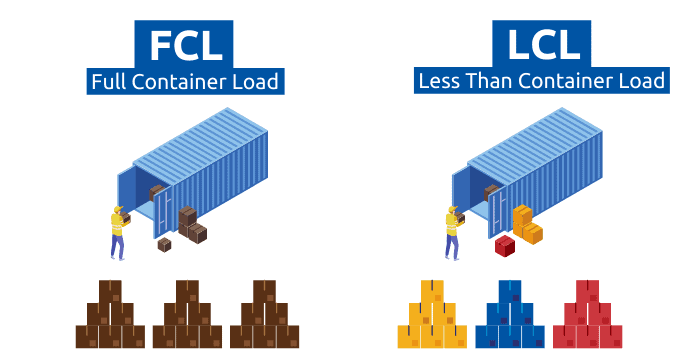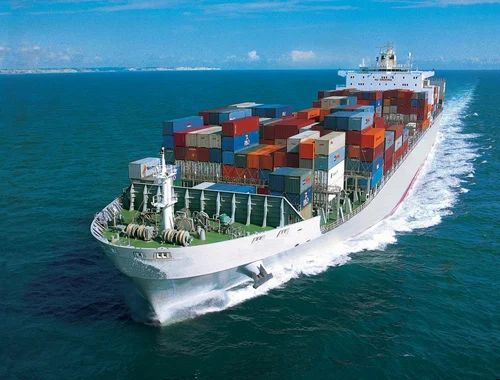- By Della tj
- September 23, 2025
- Sea Freight, Shipping
Sea freight from China to USA time is a critical factor for importers balancing costs, delivery schedules, and supply chain planning. Transit times vary widely based on ports, shipping lines, and customs processes, but with the right strategy, businesses can achieve predictable delivery schedules and competitive shipping costs.
What Determines Sea Freight from China to USA Time?
Transit duration depends on multiple variables, including:
- Port of origin in China and port of destination in the U.S.
- Shipping line schedules and vessel speed.
- Seasonal demand and port congestion.
- Customs clearance at both ends.
- Type of container (FCL vs LCL).
Moreover, external factors such as weather conditions or labor strikes can also extend delivery schedules.
How Long Does Sea Freight Take from Major Chinese Ports?
| Origin Port | Destination (West Coast) | Time Range | Destination (East Coast) | Time Range |
|---|---|---|---|---|
| Shanghai | Los Angeles/Long Beach | 14–18 days | New York/New Jersey | 28–35 days |
| Shenzhen (Yantian) | Los Angeles/Long Beach | 15–20 days | Savannah | 30–36 days |
| Ningbo | Oakland | 16–21 days | Miami | 32–38 days |
| Qingdao | Seattle | 18–23 days | Charleston | 29–34 days |
Accordingly, West Coast destinations provide faster transit compared with East Coast ports.
How Does Container Type Influence Transit Time?
| Container Option | Transit Impact | Pros | Cons |
|---|---|---|---|
| FCL (Full Container Load) | Faster unloading, direct | Cheaper per unit | Requires large volume |
| LCL (Less than Container Load) | Adds 3–5 days for consolidation | Flexible for small cargo | Slower overall |
To illustrate, small businesses may accept longer transit times under LCL for cost savings.

How Do Shipping Methods Compare for Time and Cost?
| Mode | Average Cost | Transit Time | Pros | Cons |
|---|---|---|---|---|
| Standard FCL | $2,000–$2,700 | 14–35 days | Economical for large cargo | Slow delivery |
| LCL | $35–$60/CBM | 18–40 days | Cost-efficient for SMEs | Consolidation delays |
| Expedited Sea Freight | $3,000–$3,800 | 12–20 days | Faster transit | Higher rates |
| Air Freight | $6–$12/kg | 3–7 days | Fast and reliable | Expensive |
As a result, many companies balance urgent air shipments with bulk sea freight.
Real Case Studies of Sea Freight from China to USA
Case 1:
- Route: Ningbo → Los Angeles
- Cargo: 1×40HQ, electronics
- Mode: FCL
- Cost: $2,700
- Transit Time: 17 days
- Outcome: Retailer met Black Friday deadlines without extra costs.
Case 2:
- Route: Shenzhen → New York
- Cargo: 500 CBM textiles
- Mode: LCL
- Cost: $45/CBM
- Transit Time: 34 days
- Outcome: Apparel importer lowered costs but required better inventory planning.
What Customs Documents Are Needed for Sea Freight?
| Document | Purpose |
|---|---|
| Commercial Invoice | Declares product value |
| Packing List | Confirms weight and measurements |
| Bill of Lading | Contract of carriage |
| Arrival Notice | Informs importer of vessel arrival |
| Customs Bond | Required for clearance |
Indeed, accurate documentation prevents clearance delays that extend total transit time.
How Does Peak Season Affect Sea Freight from China to USA Time?
Peak demand before Chinese New Year, Golden Week, and holiday sales increases congestion. Consequently, vessels may experience rolled bookings and delays of 5–10 days. Therefore, importers must book space several weeks in advance to avoid disruption.

Should You Ship to the West Coast or East Coast?
- West Coast (LA, Long Beach, Oakland, Seattle): Faster sailing times (14–20 days) but inland trucking or rail adds extra time for deliveries to Midwest or East.
- East Coast (New York, Savannah, Miami, Charleston): Longer sea freight (28–38 days) but reduced inland transportation for eastern markets.
On the other hand, some importers choose Gulf Coast ports to balance costs and timelines.
What Are the Pros and Cons of Sea Freight Compared with Air Freight?
| Mode | Pros | Cons | Average Transit Time |
|---|---|---|---|
| Sea Freight | Low cost per unit, high volume | Slow, port delays | 14–40 days |
| Air Freight | Fast, reliable | High cost, limited cargo | 3–7 days |
To summarize, sea freight is best for bulk shipments, while air suits urgent or lightweight cargo.
How Can Importers Reduce Transit Time?
Practical strategies include:
- Booking shipments during off-peak seasons.
- Choosing direct sailings rather than transshipments.
- Using reliable freight forwarders with strong carrier networks.
- Ensuring customs paperwork is accurate before vessel departure.
Consequently, better planning ensures stable supply chain performance.
Conclusion
Sea freight from China to USA time typically ranges from 14–20 days to the West Coast and 28–35 days to the East Coast. Variables such as container choice, port congestion, customs clearance, and seasonality influence the final delivery schedule. In conclusion, working with an experienced freight forwarder ensures accurate planning, reduced risks, and competitive timelines for shipping between China and the USA.
- Consult TJ China Freight Forwarding for the lowest quote. They will provide you with reliable, cost-effective service.
FAQs
Q1.How long is sea freight from China to USA during peak season?
Transit times increase by 5–10 days due to vessel capacity issues, port congestion, and holiday-related shipment surges.
Q2.Does LCL affect sea freight from China to USA time?
Yes, LCL adds 3–5 days for consolidation and deconsolidation, making it slower compared with full container load shipments.
Q3.Can expedited shipping reduce sea freight from China to USA time?
Absolutely, expedited FCL services can cut transit by 3–5 days, though shippers pay higher freight rates.
Q4.How do customs inspections impact sea freight from China to USA time?
Inspections may delay clearance by 2–5 days, especially if documentation errors or compliance issues are identified.
Q5.What is the fastest possible sea freight from China to USA time?
Direct sailings from Shanghai or Ningbo to Los Angeles may take as little as 12–14 days under ideal conditions.

